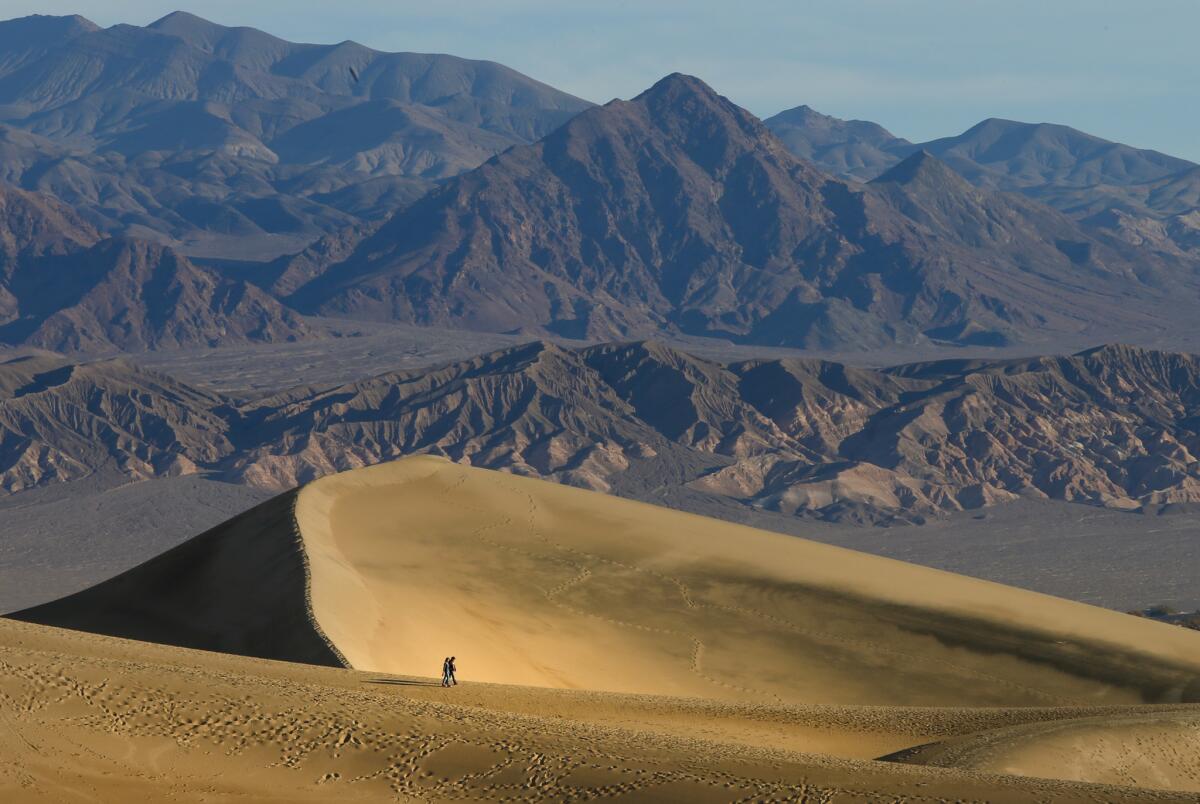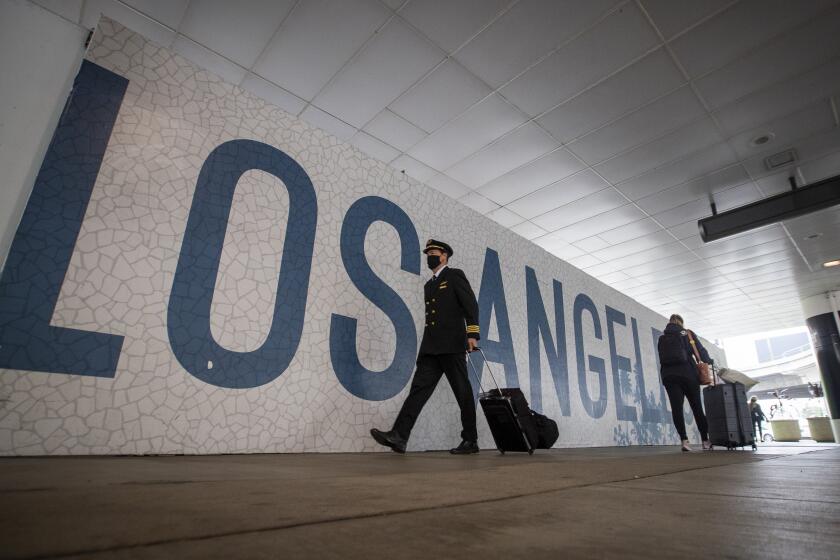Many California campgrounds, national park lodgings closed over new stay-home rules

- Share via
Campgrounds and lodgings at Yosemite, Joshua Tree, Death Valley and other national parks closed Monday to comply with new California stay-home rules. Also, California state parks in affected areas also closed campgrounds but remain open for day-use. The governor’s stay-at-home order announced Thursday went into effect late Sunday in Southern California and the San Joaquin Valley. The new, stricter rules go into effect when areas of the state fall below 15% ICU capacity.
Five counties in the Bay Area, which include the cities of San Francisco and Berkeley, also adopted the new order Sunday to address already overcrowded hospitals dealing with COVID-19.
The order remains in effect for at least 21 days.
Yosemite National Park will remain open 8 a.m. to 5 p.m. for day use, according to the website. Lodgings, such as the Ahwahnee hotel and campgrounds, closed Monday. Dining facilities will be limited as a result of the order, which prohibits indoor and outdoor dining. Trails, park roads and overlooks at Death Valley National Park are open but developed and back-country campgrounds as well as The Oasis at Death Valley’s ranch and inn will close Monday, its website says.
Joshua Tree National Park closed developed campgrounds, though parts of Indian Cove and Black Rock campgrounds will remain open to so hikers can access trails, the website says. Museums and visitor centers are closed, but roads, parking lots and most bathrooms are open. Also, the park is open to back-country camping.
Visitors holding campground reservations can expect to get an email about a refund from Recreation.gov.
Developed campgrounds in eight national forests in California will close Tuesday. Impacted forests include Angeles, Cleveland, Inyo, Los Padres, San Bernardino, Sequoia, Sierra and Stanislaus. The order will continue through Jan. 6, according to a Forest Service statement.
California State Parks campgrounds in impacted areas closed Monday. People holding reservations will receive a refund from ReserveCalifornia, the state’s reservation system.
This new phase in the pandemic means new rules for hotels and other travel providers.
In his speech about the order, Newsom emphasized that trails and beaches would remain open, but asked Californians not to gather with people outside your immediate household. Also social distancing and mask-wearing rules remain in place. State parks urge people to prepare for their day visits by bringing their own hand sanitizer and soap, and taking their trash with them when they leave. Some restrooms may not be open, and new parking rules may be in place, the release said. Check the state parks’ website before you go to make sure you know what to expect.
Agency director Armando Quintero said in a statement Friday: “While the new regional stay at home order is asking Californians to stay home as much as possible and for campground sites in impacted regions to close, the state also recognizes that that outdoor activity is critical for mental health and physical health. We welcome you to recreate in the outdoors provided that you stay local, plan ahead to find out what is open, wear a face covering, practice physical distancing and avoid gatherings with people outside the immediate household.”
According to the order announced Thursday, strict rules went into effect when a region’s intensive care unit capacity dips below 15%. Southern California’s capacity dropped to 12.5% and the San Joaquin Valley’s to 8.6% as of Saturday, data released by the state shows.
With the pandemic worsening and winter break nearly here, many families are rethinking their holiday travel plans.
The order also requires Californians to stay home — allowing only essential travel — and shuts indoor and outdoor playgrounds, hair salons and barbershops, wineries, cardrooms, amusement parks and other businesses and activities. It also limits hotels and lodging to serving essential travelers, limits restaurants and eateries to take-out only, and limits stores and shopping centers to 20% capacity.
The order remains in effect for 21 days after the shutdown begins. Over the last week, California averaged 17,007 new cases of COVID-19 each day, according to Times data. That represents a 61.6% increase from two weeks ago. Read more on current case increases here.
More to Read
Sign up for The Wild
We’ll help you find the best places to hike, bike and run, as well as the perfect silent spots for meditation and yoga.
You may occasionally receive promotional content from the Los Angeles Times.







